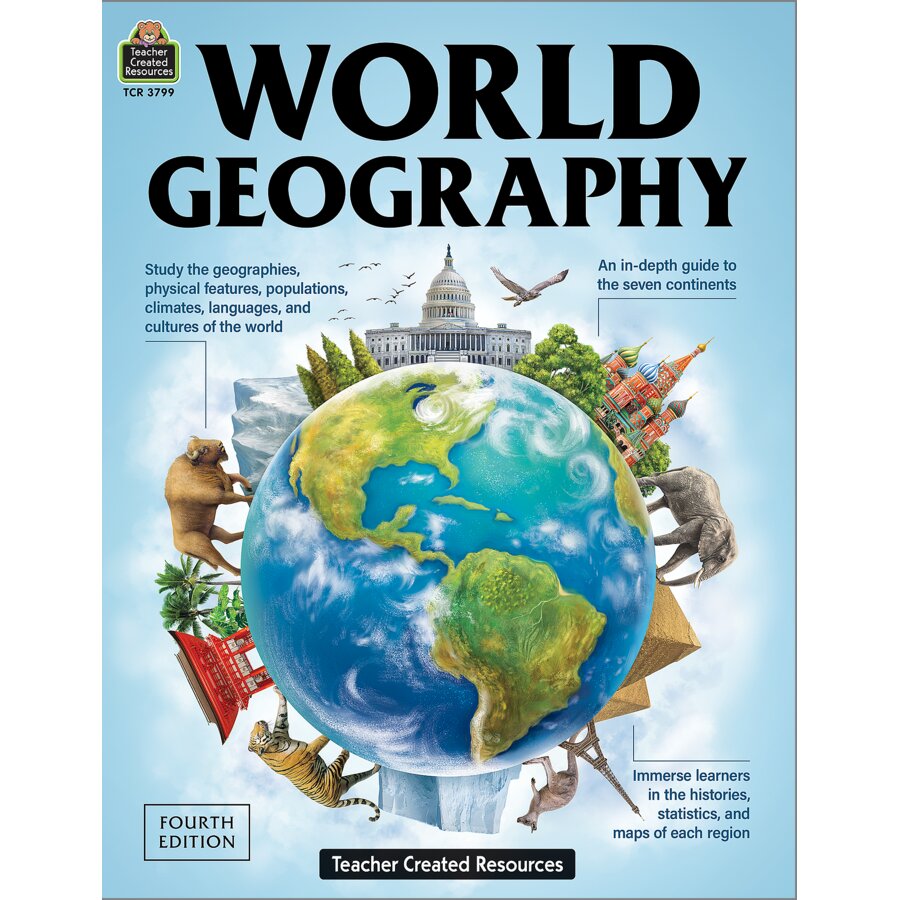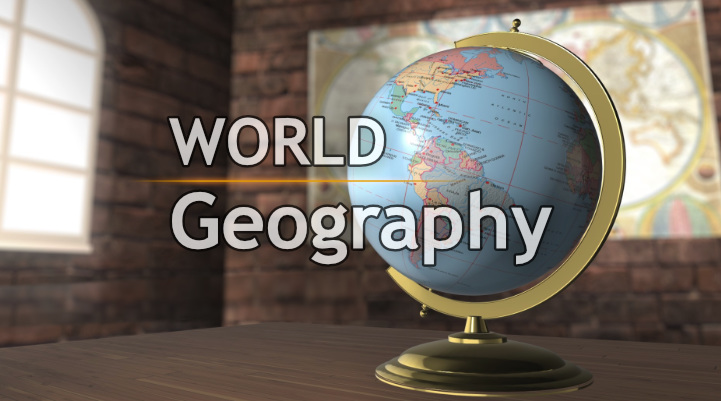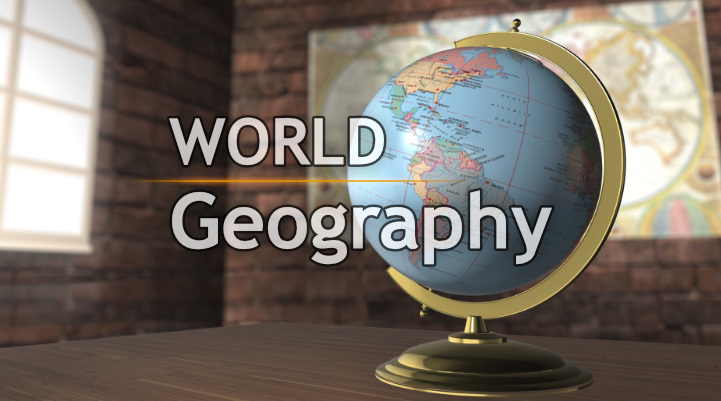World Geography Lessons: A Comprehensive Guide to Exploring the World
World geography is an essential subject that helps students and learners of all ages understand the world’s physical features, political boundaries, and cultural diversity. With the increasing access to online learning platforms, geography lessons are now more accessible than ever. In this article, we will explore the importance of world geography, the best resources for learning it, and why it is critical to understand the geographical features that shape our world.

Why Learn World Geography?
1. Understanding Global Connections
Learning world geography allows you to understand how countries, continents, and oceans are interconnected. From global trade routes to international relations, geography gives you insights into how countries interact and depend on each other. This knowledge is crucial in today’s increasingly globalized world, as it helps to foster understanding and cooperation across borders.
2. Cultural Awareness
Geography lessons aren’t just about physical landscapes; they also introduce learners to different cultures, languages, and traditions. Understanding where people live, how they live, and why certain cultures thrive in specific regions can deepen your appreciation for the diversity that exists worldwide.
3. Environmental Awareness
With environmental issues such as climate change and deforestation becoming more urgent, understanding geography is more important than ever. Geography lessons teach us about natural resources, ecosystems, and environmental changes. This knowledge can help individuals and societies make informed decisions about conservation and sustainable living.
The Benefits of Learning World Geography
1. Enhanced Critical Thinking
World geography promotes critical thinking skills by encouraging learners to consider the relationships between human activities and the environment. It also teaches problem-solving skills, as learners analyze how geography influences societal challenges, such as migration, urbanization, and natural disasters.
2. Improved Academic Performance
Geography is often a key subject in school curriculums worldwide. By mastering it, students can improve their academic performance, not only in geography but also in other subjects like history and science. The skills gained from studying geography—such as map-reading, data analysis, and research techniques—are transferable to other areas of study.
3. Global Awareness
In today’s interconnected world, being globally aware is crucial. Learning world geography helps students understand current events, international politics, and global economic issues. This knowledge makes individuals more globally aware, which is important for personal growth and professional development.
Best Resources for Learning World Geography
1. Online Geography Courses
If you want to dive deeper into world geography, online courses offer an excellent way to learn at your own pace. Platforms like Coursera, EdX, and Udemy provide a range of geography courses that cover topics from basic world maps to complex environmental systems. These courses often include video lectures, quizzes, and assignments to test your understanding.
-
Coursera offers courses from top universities, such as Yale and the University of London, providing both free and paid options.
-
EdX features university-led courses from institutions like MIT, focusing on topics such as global ecosystems and human geography.
-
Udemy offers affordable courses tailored to both beginners and advanced learners interested in specific geographical topics, including the study of continents or climates.
2. Interactive Maps and Tools
Using interactive maps and geographic tools can help you understand geography in a more engaging and practical way. Websites like Google Earth and National Geographic offer detailed maps and tools that allow you to explore countries, continents, and cities virtually. Interactive tools can be especially useful for visual learners, as they bring geographical concepts to life.

3. Geography Textbooks
Textbooks are still one of the most reliable resources for learning world geography. Comprehensive textbooks cover everything from physical geography to cultural geography. For younger learners, books like World Geography: A Physical and Cultural Approach offer a clear and engaging introduction to the subject.
You can also find books specifically focused on geography quizzes, world landmarks, or map skills, which help reinforce geographical knowledge through interactive learning.
Recommended books:
-
“National Geographic Atlas of the World” – A comprehensive guide with maps and detailed geographical information.
-
“Geography for Kids: Understanding the World” – An introductory book that presents geography concepts in an engaging and easy-to-understand way for children.

4. Geography Apps
Several mobile apps are designed to make learning geography fun and interactive. Apps like GeoGuessr and Seterra provide games and quizzes that test your knowledge of world geography, helping you memorize countries, capitals, and landmarks through engaging, game-based learning.
Popular geography apps:
-
GeoGuessr – A geography game that drops you somewhere in the world on Google Street View, and you have to guess where you are.
-
Seterra – An interactive map quiz app that helps you learn the locations of countries, capitals, and major cities.
Key Concepts in World Geography
1. Continents and Oceans
The world is divided into seven continents: Africa, Asia, Europe, North America, South America, Antarctica, and Australia. In addition to continents, there are five major oceans: the Atlantic, Pacific, Indian, Southern, and Arctic Oceans. These basic geographical units form the foundation of geographical study.
2. Countries and Capitals
Learning the locations of countries and their capitals is one of the most fundamental parts of world geography. You can start by familiarizing yourself with the countries of each continent and their capitals, which are key to understanding the political landscape of the world.
3. Geographical Features
Geography also explores the Earth’s natural features, such as mountains, rivers, deserts, and forests. These physical features shape the human settlements and the environmental conditions in different regions. Understanding physical geography allows us to see how natural resources and climate affect different countries.
4. Climate Zones
Climate plays a vital role in shaping a region’s geography. The Earth is divided into several climate zones, including tropical, temperate, and polar zones. Learning about these zones helps explain why some regions are hot and humid, while others are cold and dry.
FAQs About World Geography Lessons
1. What are the basic topics covered in world geography lessons?
World geography lessons cover a wide range of topics, including continents and oceans, countries and capitals, climate zones, physical geography (mountains, rivers, etc.), and human geography (population, culture, economy).
2. What are the best online platforms to learn world geography?
Some of the best online platforms to learn world geography include Coursera, EdX, Udemy, and Khan Academy. These platforms offer both free and paid courses taught by experienced instructors.
3. Are geography lessons suitable for all age groups?
Yes, geography lessons are designed for all age groups. There are specialized courses and books for children, high school students, and adults, making it easy to find learning materials appropriate for your age and learning level.
4. How can I improve my geography knowledge?
You can improve your geography knowledge by taking online courses, using interactive maps and tools, reading geography books, and playing geography-based games. Regular practice through quizzes and challenges will also help reinforce your knowledge.
5. What is the importance of learning world geography?
Learning world geography is important because it helps you understand global connections, fosters cultural awareness, and improves environmental consciousness. It also helps develop critical thinking and research skills, making it valuable for both academic and real-life applications.
Conclusion
World geography is a fascinating and essential subject that opens up a deeper understanding of the world around us. Whether you’re looking to explore the physical features of the Earth, learn about different cultures, or gain insights into global connections, geography lessons are a great way to enhance your knowledge.
By utilizing interactive resources, online courses, and engaging geography books, anyone can learn about the world at their own pace. The benefits of understanding geography extend far beyond the classroom—helping you become a more globally aware and environmentally conscious individual.
Start your journey into the world of geography today, and uncover the many wonders our planet has to offer!











